Detroit native's ancestry research helped her make history
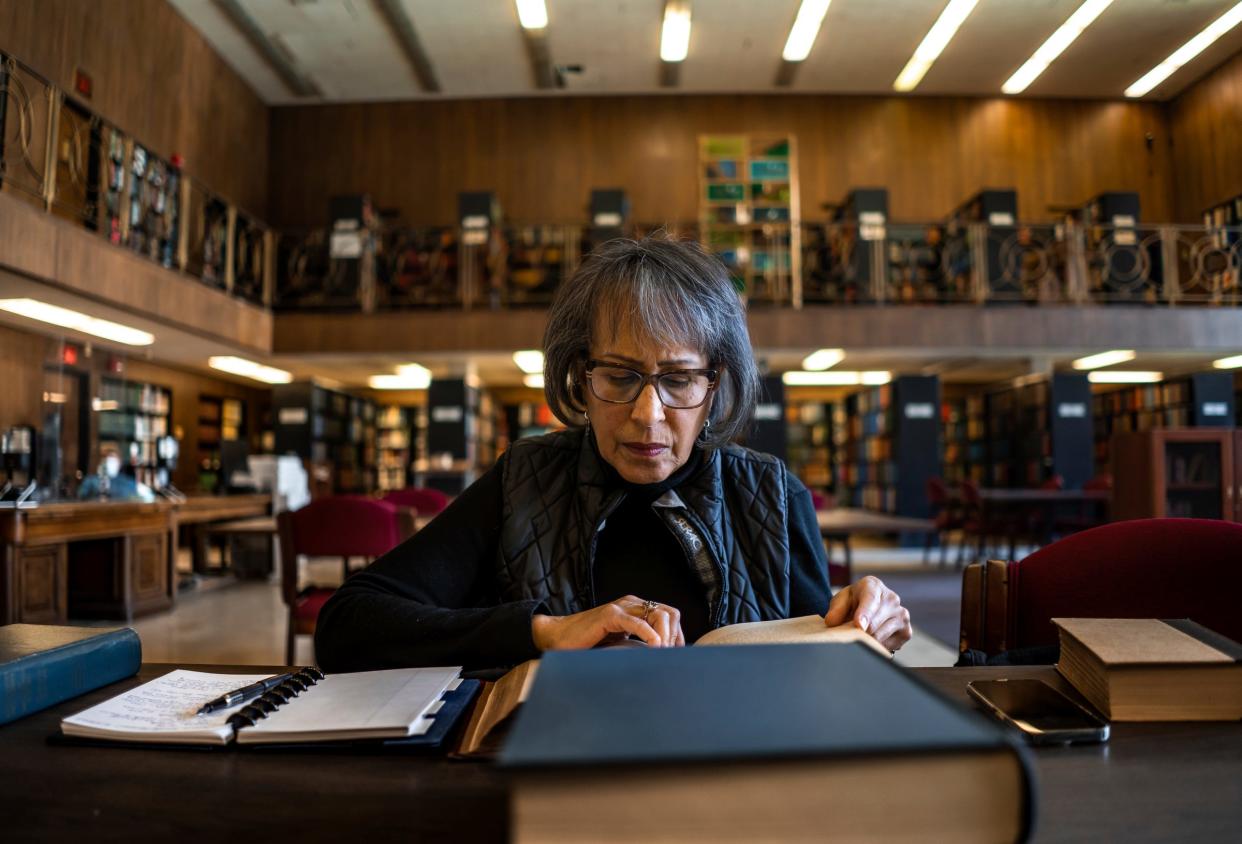
Before she was celebrated on the front page of the New York Times.
And before her name appeared in a Final Jeopardy! answer.
Karen Batchelor was a teenager, who for a year in her life rode two Detroit bus lines to a destination where she was made to feel not welcomed by most. Such was life for a Black student attending Detroit’s Arthur Junior High in 1966.
“Prior to being diagnosed with breast cancer and before the entire world was changed by COVID-19, that was the worst year of my life,” the 71-year-old Batchelor said as she recalled her ninth grade year at Arthur, which Batchelor and three other Black students helped to integrate. “You’re 14 years old and you don’t want to stand out, and we (the four Black students) were all in different classes. The isolation and loneliness; I carried that with me.”
In response to the silent treatment Batchelor was receiving at the east-side school, she sought answers inside her Russell Woods neighborhood home on Detroit’s west side.
“I came home one day in tears, and I asked my parents: ‘Why are you making me do this?’ " Batchelor said. “And my dad said something to me that still floats through my mind whenever I have to face a challenge. He said: ‘Because someone has to.’ ”
Those words weren't surprising given that her father, Dr. Thomas Melvin Batchelor, was a pioneer in the medical field whose accomplishments include being the first African American on the staff of Sinai Hospital and the first African American to teach at Grace and Sinai hospitals. Dr. Batchelor was plenty tough, too, as he demonstrated after he was attacked by a mob on the Belle Isle bridge during the 1943 race riots, which ultimately resulted in the amputation of a leg during his last year of medical school.
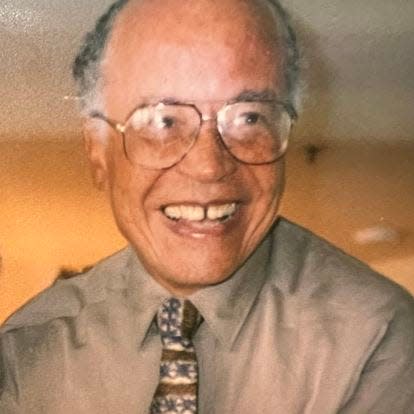
As a couple, Batchelor said her father and mother, Alice Vivian Batchelor, a respected schoolteacher who spoke four languages, embraced opportunities to “push the envelope” for social change. Therefore, Karen Batchelor “pushed” on for the remainder of her ninth grade year at Arthur, and she even received an invitation to a sleepover from a classmate. However, the moment of decency and innocence was ruined when Batchelor was called the N-word for the first time by a little blond boy who she believed to have been about 7 or 8 years old, while walking outside with the host after the sleepover. Still, Batchelor got through the painful moment and year, in large part due to the nurturing she received from family and extended family members that went well beyond her residential neighborhood.
“I grew up in a bubble, but it was a beautiful bubble,” said Batchelor, who was and still is a "big sister" to Paula and Thomas. “Everything about my childhood was connected to something quintessentially Detroit. I didn’t have to go looking for my heroes, they were right there.”
And many of Batchelor’s heroes growing up are still revered across Detroit, if not the world in some instances.
More:Detroit's Grandmont Community Association makes being good neighbor a way of life
“My mother was at Howard (University) with Damon Keith and I think Rachel (Boone Keith, M.D.) as well,” Batchelor said. “Judge Keith was like an unofficial godfather, as was Judge (George) Crockett (Jr.). The Hood family, the Jefferson family, and so many other people that may not be as famous in Detroit history, but they are famous in my history. From the time I was 6 until high school, I lived in Russell Woods. So, in that entire community, I had all of these really wonderful people. And then there were places like Tabernacle (Missionary Baptist) Church. We weren’t Baptists, but I went to Tabernacle for nursery school, so I knew Reverend (Frederick G.) Sampson and his family.
“Being a Detroiter, you’re not confined to just the neighborhood that you live in as your border, the community was wherever there were people that our family got to know and care for. And they were there for us, just as we were there for them.”
After Batchelor was promoted from Arthur, she would never again have to help integrate a school. With pure joy in her voice and a twinkle in her eye on Wednesday, at the Detroit Public Library Main Branch, Batchelor described how she had an abundance of people to talk to when she entered high school at Cass Tech (Class of 1969). Her educational journey would later take her to Fisk University in Nashville, Oakland University and Wayne State University, where she earned a law degree. But through it all, as she made her own accomplishments as a student and professional, Batchelor says her appreciation for her family never lessened. In fact, it intensified. And when Batchelor’s son, Chip Farmer, was born in 1975 she wanted to give him the greatest gift she could think of — the gift of family.
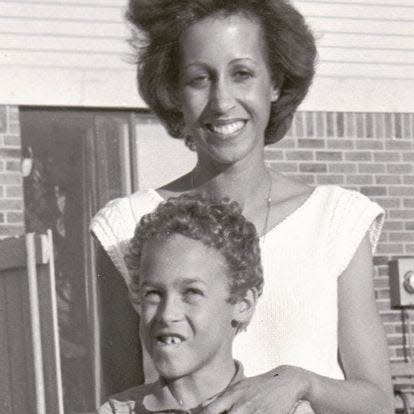
“My son was born in the summer of ‘75 and I realized there were a lot of gaps in what I knew about our family history, and how was I going to pass that along to my son if I did not know?” Batchelor queried. “I’m kind of a big New Year’s resolution person, so my resolution for 1976 was to learn more about my family, and I had no idea that decision would become a defining moment in my life.”
Batchelor’s quest to learn more about her family history began at the Detroit Public Library Main Branch, where she checked out a genealogy book in 1976.
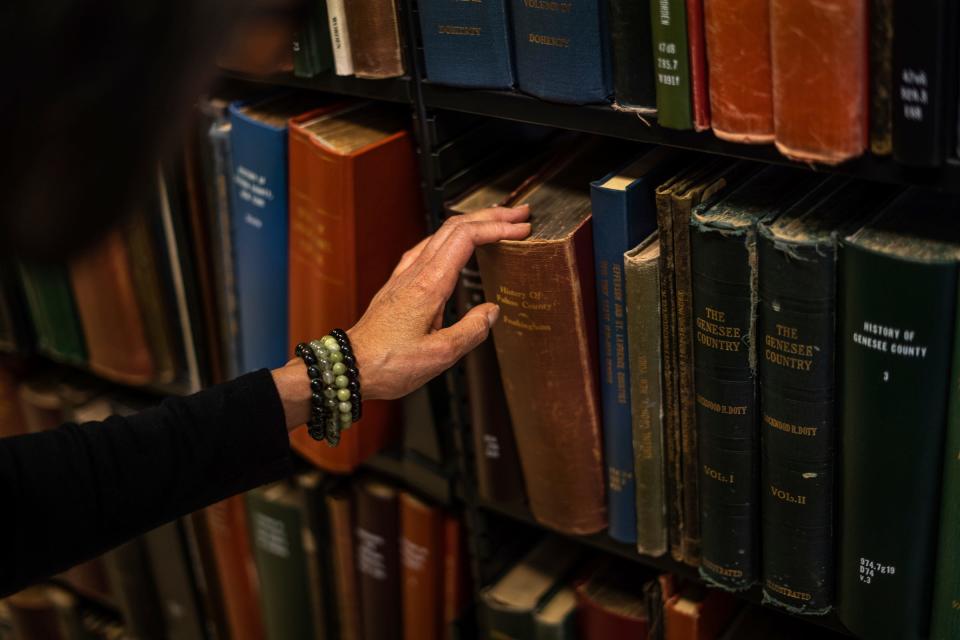
“I still have a copy of that book in my home library,” Batchelor explained. “After checking it out, I then headed back for what became countless hours of research at the Burton (Historical Collection). Here I was, before the internet and its myriad resources, being able to trace my family history to a Revolutionary War ancestor almost exclusively using resources from the Burton.”
Batchelor’s discovery of her ancestral connection to William Hood, who served in the Patriot Army during the American Revolution, would lead to her being accepted as the first known Black member of the Daughters of the American Revolution (DAR). And that would lead to a front-page story about the then-Karen Farmer in the Dec. 28, 1977, edition of the New York Times. Decades later, Batchelor’s integration of the DAR was captured in a Final Jeopardy! answer on July 8, 2013. But not too long after she first made national headlines, closer to home, and with far less fanfare, Batchelor played an important role in promoting the study of family history in Detroit when she was a co-founder and charter member of the Fred Hart Williams Genealogical Society, which has been committed to researching and preserving African American family history since 1979.
“I am proud that I was able to help found one of the early Black genealogical societies in the country,” Batchelor says proudly. “And I think it says a lot about Detroiters who continue to learn more about their family history. As we speak, people are trying to rewrite our history and erase our history as African Americans. Now more than ever, it’s important for us as Black families to know as much about our family history as we can. Everyone has an opportunity to learn a little bit more about the people they came from and I don’t think we should allow others to write our history anymore.”
More:A longtime champion for Detroit children, Karen Clingman is eager to help and walk again
On Wednesday, as Batchelor continued her ongoing research of her family at the Detroit Public Library Main Branch, she said the strength Detroiters and others can draw from learning about their ancestors can be applied to today’s challenges. And she offered up her ancestors as an example.
“Those of us who are alive today, we come from those who survived all kinds of things,” Batchelor said. “I always knew that I came from a family where there were such strong women, like my paternal grandmother (Beatrice Parker) who survived growing up in the Jim Crow South. She survived being in a town where there was a lynching of four people. She survived the Great Migration and also survived a horrible miscarriage, which almost killed her. She survived smallpox, the Great Flu, being diabetic for almost 50 years, Legionnaires' disease when she was in her 80s, and she lived to be 97. That’s a resilience that I take away from by knowing what she went through. When life throws challenges at me, like cancer, I know I come from people that survived, so I look at myself as a survivor.”
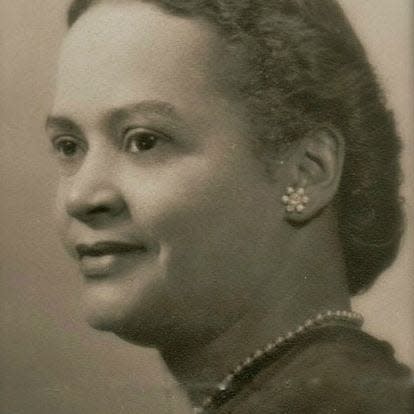
Batchelor cautioned that courage and compassion are needed throughout the family history journey, because discoveries can come with conflict. But from her perspective, the truth is always empowering.
“I descend from Puritans, Revolutionary War patriots, and early settlers of many of the 13 colonies,” Batchelor said. “I also descend from enslaved people and enslavers. I descend from people that fought on either side of the Civil War, and I even have a couple of ancestors that were prosecuted for witchcraft early in the days of this country.
“My history is more American than apple pie when you get right down to it. But I didn’t know that as a kid, and isn’t that a shame? But now I know it and it makes me stand stronger and taller and prouder as an American and no one can take that away from me. And that is a rock, a foundation, and an anchor for your life — that’s how I look at it.”
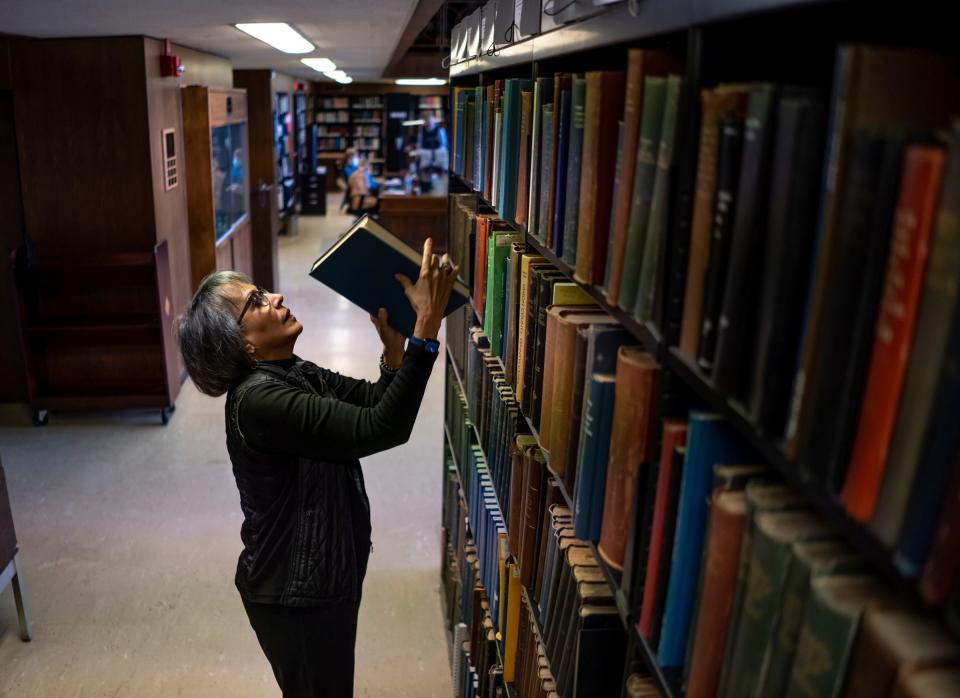
Batchelor also suggests that any family researcher brings a fair amount of humility to the table and an understanding that the job is never quite done. To enforce that point, she tells a story about an unnamed man from Ethiopia.
“I’m not even sure how we met,” Batchelor said of a gentleman who she nevertheless has not been able to forget. “But I probably said: ‘I do family history.’ And he said: ‘I know my family history.’ And I’m thinking: ‘I know mine too!’ And he goes back like 10 or 12 generations. And I’m like: ‘I have been put in my place’ because I thought I had a leg up.
“I’m sure he learned all of that as a kid in Africa, but I didn’t and it was a sobering experience for me. So this Ethiopian guy made me understand that I have a lot more work to do. And I have made a commitment to do that work.”
Scott Talley is a native Detroiter, a proud product of Detroit Public Schools and lifelong lover of Detroit culture in all of its diverse forms. In his second tour with the Free Press, which he grew up reading as a child, he is excited and humbled to cover the city’s neighborhoods and the many interesting people who define its various communities. Contact him at: stalley@freepress.com or follow him on Twitter @STalleyfreep. Read more of Scott's stories at www.freep.com/mosaic/detroit-is/.
Collecting family history: 'It's more than a hobby'
Native Detroiter Karen Batchelor has been on a mission to learn as much as she can about her family's history since making a New Year's resolution in 1976. It was a promise made for her son, Chip Farmer, who was born in the summer of 1975. Batchelor, who made national news when she became the first known Black member of the Daughters of the American Revolution (DAR) in 1977, says she also wants to be known for helping Detroiters research their family history. Batchelor says: "Today with probably only 20% of family history resources digitized and online, going to the Burton (Historical Collection at the Detroit Public Library Main Branch) should still be a destination for family researchers in metro Detroit."
Following are additional suggestions offered by Batchelor for beginning family researchers:
Start talking to your family members first and take notes.
Hit the Census; start with the 1950 Census and go back as far as you can.
Request birth and death records for anyone in your family after 1900.
Utilize DNA testing
This article originally appeared on Detroit Free Press: Karen Batchelor's ancestry research helped her make DAR history

